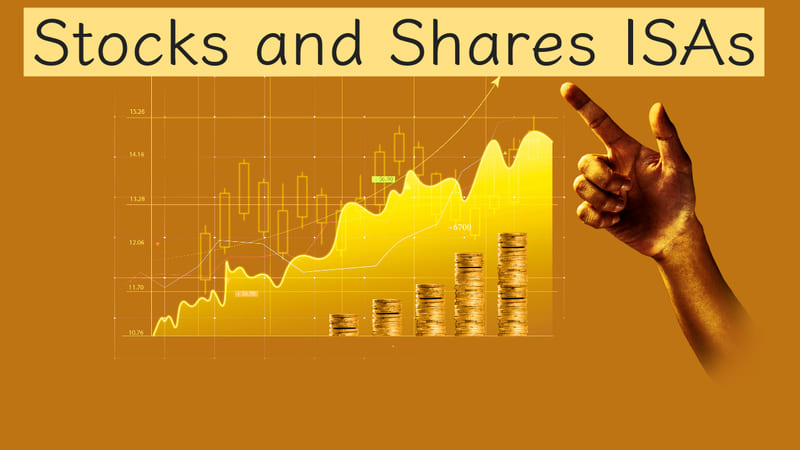What is a stocks and shares ISA?
A stocks and shares ISA, often referred to as an investment ISA, is a tax-efficient investment account. With this type of account, you are exempt from paying UK income tax or capital gains tax on the profits generated from your investments held within the ISA.
The acronym ISA stands for Individual Savings Account. A stocks & shares ISA provides you with the opportunity to invest in a diverse selection of assets, including shares, funds, investment trusts, and bonds. It’s crucial to recognize that the value of these investments can both increase and decrease, and there is a possibility that you may not recover the full amount of your initial investment.
In the UK, anyone aged 18 or older is entitled to an annual ISA allowance. For the tax year 2023/24, this allowance is set at £20,000. This tax year begins on 6th April of year and concludes on 5th April of next year.
You can utilize the entirety or a portion of this ISA allowance to invest in a financial account known as a stocks & shares ISA. Through this account, you have the opportunity to invest in various assets, including funds (collections of shares or bonds from different companies), bonds (essentially loans to companies or governments), and individual company shares. The advantage is that you won’t be subject to dividend, capital gains, or income tax on any profits or income generated from investments held within your stocks & shares ISA.
It’s essential to understand that a stocks & shares ISA is distinct from a cash ISA, which is essentially a tax-free savings account. If you are new to investing, we recommend reading our Beginners’ guide to investing to gain a better understanding of the process.
Stocks and shares isas explained
Cash ISA – Good for Short Term Investment
A cash ISA might be a more suitable choice if you’re looking for a short-term option and wish to avoid any potential financial losses.
The decision between a cash ISA and a stocks & shares ISA depends on your willingness to take investment risks and your timeline for needing access to your funds. In brief:
- If you are comfortable with the possibility of losing money and have no immediate need for your funds for at least five years, investing might be the right choice for you. In this case, consider a stocks & shares ISA.
- If you are willing to accept some risk but require access to your funds sooner, keep in mind that investing is typically a long-term endeavor. Therefore, a cash ISA would be a better fit. If you can set aside a portion of your money for at least five years, you might consider dividing it between a cash ISA and a stocks & shares ISA.
- If you are not comfortable with the idea of risking your money, sticking with a cash ISA is the safer option. However, it’s important to note that if the interest rate on your cash ISA is lower than the inflation rate, it could still result in a real-term loss of your money.
Long Term Investment
To navigate the ups and downs of the market successfully, it’s advisable to adopt a long-term approach to investing. Whether or not you should invest depends on your individual circumstances and your tolerance for risk. However, as a general guideline, it’s recommended to consider investing for a minimum of five years. This extended timeframe allows for the resilience needed to weather market fluctuations that might result in temporary losses.
If you anticipate needing access to your funds in the near future, it may be more prudent to stick with cash savings. You can refer to our Top Savings and Top Cash ISAs guides for additional information in this regard.
It’s crucial to recognize that there is no one-size-fits-all solution when it comes to selecting the best stocks and shares investments. Historically, over the long haul, stocks and shares have demonstrated better returns compared to keeping money in savings accounts. However, it’s important to note that past performance is not a guarantee of future results. Always keep in mind that investments can both rise and fall in value.
Here are five fundamental rules for investing:
- Typically, the higher the return you desire, the more risk you will need to accept.
- Avoid putting all your assets into a single investment. Instead, aim to diversify by investing in various industries or countries. Diversification can help mitigate your exposure to risk, as the hope is that if one sector or region underperforms, others will thrive and help maintain the value of your stocks & shares ISA.
- If you have short-term savings goals, it’s advisable to limit your risk exposure. It’s generally recommended to have an investment horizon of at least five years. If that’s not feasible, cash holdings may be a better option.
- Regularly review your investment portfolio. A particular fund might not perform well, a fund manager could change, or your risk tolerance might shift. Failing to assess your portfolio periodically could result in losses in your stocks & shares ISA.
- Avoid making impulsive decisions. Investments can fluctuate, and it’s essential not to succumb to buying or selling funds solely based on market sentiment or what others are doing.
Investment opportunities
There are various types of investment opportunities available, each with its own characteristics:
- Shares: A share represents a portion of a company’s overall value. For instance, if a company is valued at £100 million and has 50 million shares, each share is valued at £2 (often denoted as 200p). The value of these shares can fluctuate due to various factors. Companies issue shares to raise capital, and investors purchase shares in anticipation of the company’s success. You can find more details in our Shares guide.
- Funds: Funds offer an alternative way to invest in shares. Instead of directly buying a stake in a single company, you provide your money to a professional manager who combines it with funds from other investors to purchase a diversified portfolio of shares on the stock market. This diversification reduces the risk compared to investing in individual shares, as you share the risk with others and invest in multiple companies. Funds are divided into units, and their value fluctuates based on market demand and the performance of the underlying investments. For instance, if you invest £1,000 in a fund with £2 unit prices, you can acquire 500 units. If, after six months, each unit is worth £2.50, your investment becomes worth £1,250. For more information, refer to our Funds guide.
- Active Funds: Active funds are managed by professional fund managers who make investment decisions to outperform the market. These managers use their expertise to select assets for the fund. As a result, active funds typically have higher fees since you are paying for the manager’s services.
- Passive Funds: Passive funds, on the other hand, do not have a dedicated fund manager. Instead, they are invested in an index that tracks the performance of a specific market segment, such as the top 100 companies in the UK (e.g., the FTSE 100).
Investment funds can focus on various themes, which determine the type of assets they invest in. These themes may include:
- Geography: Funds can target specific regions, such as European, Japanese, or emerging markets.
- Industry: Some funds specialize in particular industries like green companies, utility firms, or industrial businesses.
- Types of Investment: Funds may invest in various asset classes, such as shares and corporate bonds.
- Company Size: Certain funds may concentrate on smaller to medium-sized companies.
The theme of a fund influences its risk profile. For example, a fund concentrating on “emerging market fledgling biotech companies” involves a high level of uncertainty. Success can lead to substantial gains, while failure can result in significant losses.







